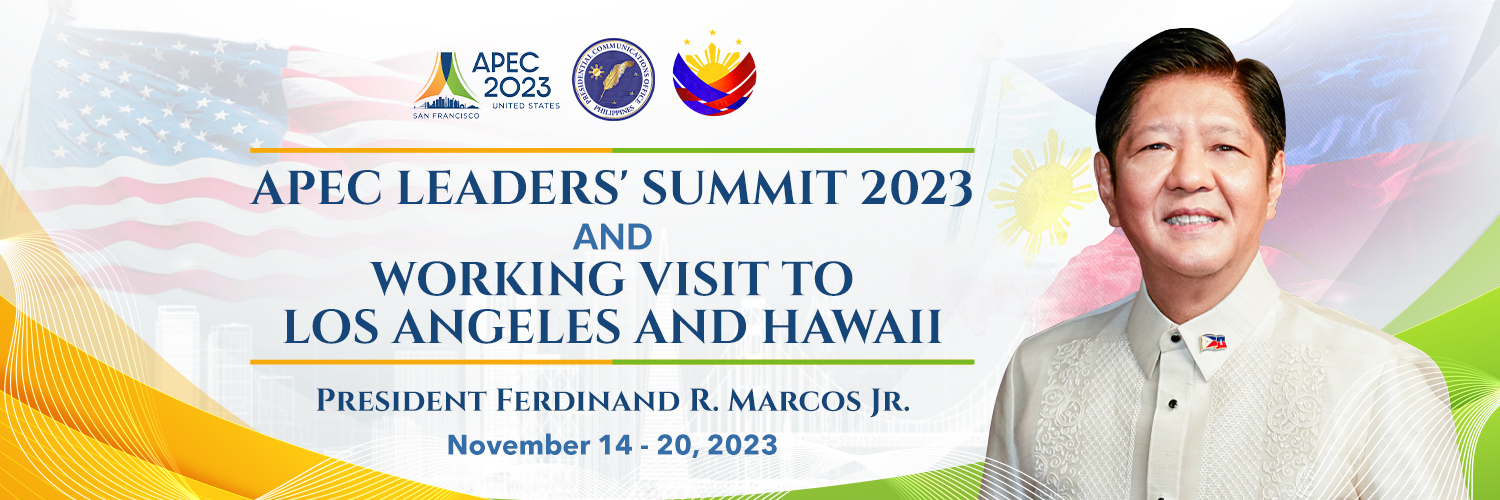Thank you, Mr. Chair.
Excellency, I first wish to express my deepest appreciation to you and your team for the kind hospitality to my delegation.
Your Majesty, Excellencies,
Thirty years ago, was when APEC was elevated to a Leaders’ level forum here in the United States. Perhaps it is no coincidence that it was also the same year APEC Leaders recognized climate change
and sustainable development as key regional and global issues.
Since then, climate issues have become more acute, demanding strong, immediate, and coordinated action. APEC offers us the unique opportunity to explore and incubate multifaceted and cross-cutting policy options and best practices to transition to a clean, renewable, and sustainable economy.
This transition for both energy security and environmental protection and preservation in line with our climate goals must be done in a way that is just, inclusive, sustainable, and affordable.
Promoting mitigating strategies that incorporate supportive supply-side and demand-side measures rather than relying solely on methods such as carbon taxes and phasing out inefficient fossil fuel subsidies may lead to better outcomes, especially in line with APEC’s voluntary and consensus principles, and equal partnership and shared responsibility spirit. On the supply side, deeper collaboration in advancing and adopting affordable
and accessible renewable energy and low-carbon technologies can steer us away from fossil fuel reliance. Using science, technology, and innovation and cooperation in research will lower costs of development, enhance the quality of technologies, and expedite climate mitigation solutions.
On the demand side, the promotion of energy efficiency and conservation initiatives can reduce the demand for fossil fuels. Embracing these supportive approaches contributes to an equitable and inclusive transition.
The just energy transition entails not only ensuring that affected and already underserved segments such as micro, small, and medium enterprises (MSMEs) and rural and geographically disadvantaged communities continue to have access to affordable energy, but also that our ambition is supported by quality jobs and workforce development, human resource upskilling, infrastructure connectivity, and blended finance packages. Key to addressing the high cost of green technology is cooperation in its development, liberalization of the sector, and facilitation of green trade and investment.
For our part, the Philippines has liberalized to full ownership in the solar, wind, and geothermal sectors, reduced tariff rates on environmental goods, and advanced the promotion and increased adoption of renewables in our energy mix and diversification of energy sources to include clean and indigenous sources and mainstream sustainable practices.
Digitalization and innovation are central to building a resilient and sustainable future by optimizing resource use, promoting clean technologies, and supporting smart cities and infrastructure.
Collaboration on new and emerging sustainable fuels and technologies, storage systems, electric mobility, and critical minerals for storage, batteries, and cables are some of the many possibilities.
Economic reform toward greening the economy plays a key foundational role. Good regulatory practices and integrating innovation into regulatory policy development would ensure that our economies would have an enabling environment to encourage and adopt a green economy. Tools such as impact assessment, public consultation, and international regulatory cooperation would improve regulatory efficiency.
As regulators and decision-makers, ours is the responsibility to balance stimulating economic growth with protecting the public during this transition.
Capacity building in the development of new models, scenarios, and risk assessment tools, sharing of data, and building of new reporting standards compatible with the evolving context would prove critical in both magnifying the collective impact of our individual actions and appropriately monitoring and evaluating our progress in the implementation of our objectives.
I wish to highlight, as an example, the self-funded Climate Risk Scenarios initiative of ABAC Philippines, lodged under the Sustainable Growth Working Group, that aims to assist economies to build long-term climate resilience and fortify investments with a climate lens through the democratization of limited and pricey climate risk data.
This also underscores the expanding role of public-private partnerships from mere financing to design, implementation, and responsible business conduct.
On other projects and initiatives, the Philippines supports pioneering work on the adoption of sustainable and green supply chains and circular economy models that can systematically collect agricultural and industrial waste for recycling and upcycling, trade in remanufactured goods, regulation of plastic pollution, and encouraging sustainable plastics trade. These are some ways we can concretely contribute to global environment efforts, that can be mainstreamed to the multilateral trading system. More than combating marine debris and illegal, unreported, and unregulated (IUU) fishing, we must start exploring frameworks on the economic governance, protection, and preservation of our rich aquatic and marine resources and other components of the blue economy such as tourism, maritime transport, and other emerging activities for food, energy, health, climate security, and sustainable development. After all, what brings us here together is the expanse of the ocean connecting us.
Colleagues,
APEC’s work must reflect a historical climate injustice for those that are least responsible suffer the most.
APEC can contribute to a trade and investment environment that assists economies in cutting emissions, facilitating climate financing, and supporting technology transfer, especially
for the most vulnerable economies. Technology diffusion ensures that green energy solutions are accessible and affordable to all. In this regard, I call for stronger economic and technical cooperation.
Let me end by saying that regional cooperation, structural reforms, and capacity building will be even more critical as we advance toward our sustainability and inclusivity goals. The current economic climate presents us with several opportunities to drive peace, prosperity, and resilience in our region and the global economy.
I commend the U.S. for sparking critical discussions warranting our commitment and for its excellent chairmanship of APEC this year, bringing us all closer to a sustainable and resilient future.
— END —

